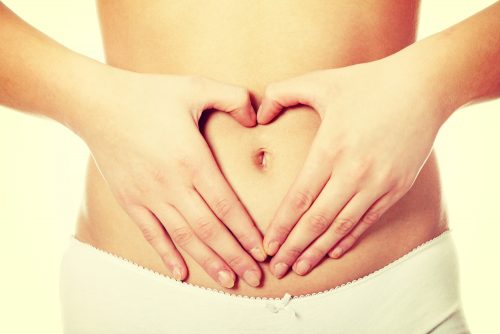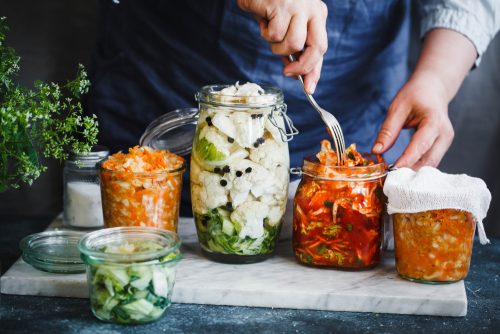
The conversation between your gut and mind
With shorter days and less hours of natural sunlight, winter time can be mood challenging. That is why today I would like to show you how to boost your mood through something you may have never considered, your gut. The “conversation” between the gut and the mind has to be one of my favourite topics and I am very excited to write about it this month. I love this topic as it illustrates how crucial the interaction is between different systems in our body, particularly the body-mind connection, and why we should always consider looking at the big picture. Although there is an obvious physical distance between the gut and the mind, they are actually very close. This relationship has been extensively studied in recent years and understanding its ins and outs will hopefully help us to better nurture our gut and mind. Let’s have a closer look at it.
The gut-brain axis
The key player in this gut-mind relationship is the community of microbes who live in our gastrointestinal tract. This population of microbes is known as the gut microbiota. Collectively they help to digest food, synthesise vitamins, fight infections, and, as discovered more recently regulate brain health. One of the first evidences of this gut-mind relationship (also called the gut-brain axis) came from a study where researchers showed that it was possible to transmit different behavioural traits between mice by transplanting their gut microbiota. Mice with a “shy” personality would adopt a more “adventurous” behaviour when carrying the gut microbiota from mice with an adventurous personality. In humans, a trial has shown that administration of probiotics (live beneficial microorganisms) to patients with depression significantly improved their symptoms, particularly anxiety.
Gut to brain
The messenger between the gut and the brain is the “happy” chemical serotonin. Serotonin is well known for its role in regulating mood, appetite and sleep. The gut microbiota can affect levels of chemicals (or neurotransmitters – molecules that facilitate neuron communication in the brain). Certain types of microbes in the gut can directly stimulate the production and release of serotonin in the cells lining the colon. In fact these serotonin-producing cells account for more than 90% of serotonin production in humans! No wonder these little organisms in your gut can have such a great influence on the brain and therefore on mood. If your gut isn’t functioning correctly it may be that these cells aren’t able to produce the right levels of serotonin needed to balance your mood.
Brain to gut
Conversely, alterations in the brain can also affect the gut microbiota, a concept that most of us are familiar with. Who has never had that nerve-wrecking job interview that upset our digestive system for days? Sixty percent of patients with irritable bowel syndrome (IBS) indicate that stress is the factor triggering either the first onset or the exacerbation of symptoms. IBS is often associated with psychological issues and therapies such as cognitive behavioural therapy and hypnotherapy are known to be significantly effective in treating IBS.
How to look after your gut microbiota
Since it is becoming clearer that the community of microbes living in the gut can largely affect our outlook in life, it is crucial to take good care of these “good guys”. Here are a few tips:
Replace
- Eat foods rich in probiotics such as kefir, sauerkraut, kimchi, live yogurt and kombucha to build a strong army of good microbes.
Avoid
- Avoid foods such as sugar, processed foods, excess gluten as well as alcohol. If you can’t avoid these altogether find a way to reduce intake and balance them with gut balancing foods.
- Avoid the overuse of antibiotics and painkillers; antibiotics can create a gut microbiota imbalance by killing good bacteria and painkillers can damage the gut lining.
Investigate
- Check if you are suffering from any food reaction or food-related inflammation. Ongoing food reactions can trigger inflammation by leading to the production of inflammatory molecules called cytokines. Inflammation and cytokines damage the gut lining which leads to intestinal permeability. There is now evidence that inflammation is linked to depression. We offer a test that measures both food-related inflammation and food reactions. Book an appointment to find out more about this test.
- If you often experience digestive symptoms, it may be helpful to perform a functional test that analyses your gut microbiota profile and can rule out a bacteria imbalance or infection (such as pathogenic bacteria or parasites).
Replenish
- Supplements which can help to support your gut health include probiotics to replenish good bacteria, L-glutamine to reduce intestinal permeability and turmeric to reduce inflammation.
Restore
- Now that you know your mood can also affect your gut watch out your stress levels and adopt stress-management techniques such as yoga, chi-kung, a talking therapy, and do not forget to make time for yourself.
If you’d like my help with restoring and balancing your gut book an appointment now.





